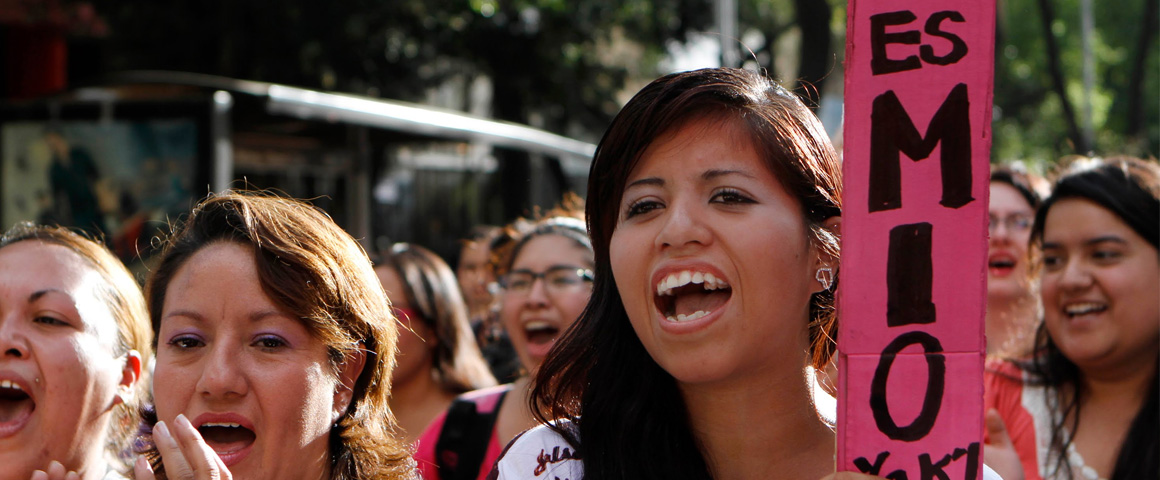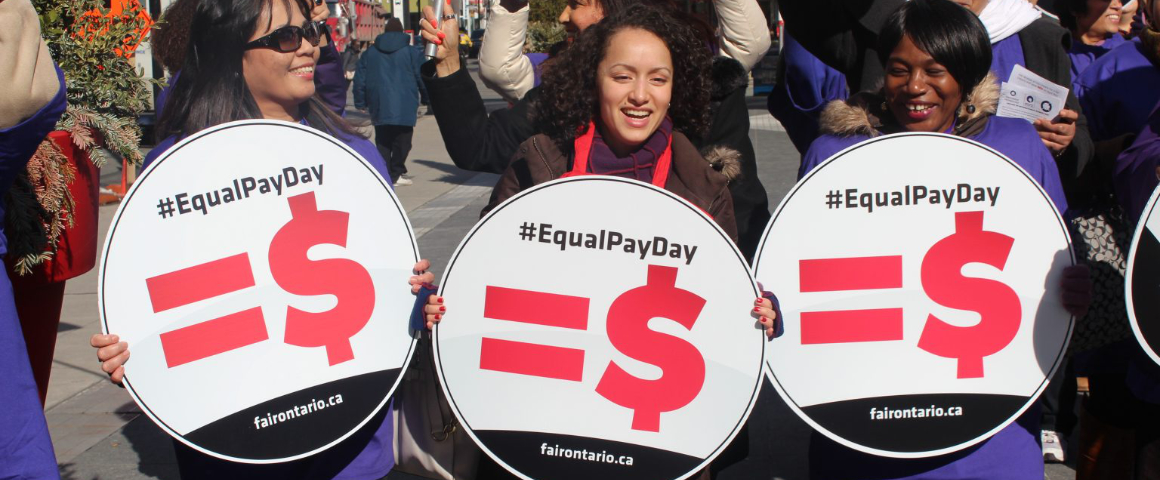As we commemorate the National Day of Remembrance and Action on Violence against Women on Dec. 6 this year, we must acknowledge the weight of revelations of women’s experiences with sexual harassment and gender-based violence through the #metoo campaign.
While we hear daily revelations from Hollywood stars, working class women are also affected across all sectors. Working class women don’t have the advantages of their star power, nor the economic benefit of Non-Disclosure Agreements (NDA) that are offered these stars to keep quiet. Their harassers may be their co-workers, their supervisors, their partners or their ‘friends.’ Rape Crisis Centres report that they have been swamped with calls requesting support with harassment and sexual assaults since the hashtag began trending.
A recent study quantified this trend even further. According to the poll, “there are almost 15 million adult women in Canada and according to our latest survey, almost 8 million of them (53%) have experienced unwanted sexual pressure. The prevalence of this experience is highest among women under 45. Women 30-44 are most likely to see this problem in the workplace: 22% say it is common, and a total of 64% say it happens in their workplace.”
In 2016, legislation in Ontario strengthened the workplace sexual harassment law. Over the last year, legislation in Ontario, BC and Manitoba mandated all public post-secondary institutions establish a stand-alone sexual assault policy to address the rape culture that permeates university campuses.
But only so much change can be legislated. The problem of harassment and gender violence is deeply rooted in our capitalist system. Capitalism depends on the systemic oppression of women in order to reproduce itself. Fighting oppression is a longer-term goal that will only end exploitation and oppression when the capitalist system itself is replaced with socialism.
However, harassment, sexual assault and gender violence is behaviour that can be ‘fixed’ in the short term. Legislation helps, but doesn’t go far enough. Women, and some men, in precarious workplaces whether unionized or not, indigenous, immigrant, migrant, racialized, queer and poor workers are left to fend for themselves in most workplaces. Hotel workers are often forced into challenging positions based on their interactions with ‘guests’ in intimate surroundings. Women in the building trades face a misogynist environment in their everyday working lives. Women who work as servers, cleaners, government workers, nursing home workers, post-secondary workers all face harassment in their working lives – and the list goes on and on.
Both men and women are socialized within our patriarchal society. Some may not realize how their socialization may lead them to perpetuate the disproportionate power imbalance that exists in all structures and institutions in our society. This doesn’t include nor excuse those men who are well aware of their predatory behaviour. But it does give us a starting place to begin an educational process to strengthen the numbers of activists, both men and women, who will challenge behaviour and help develop an informed culture of consent.
Survivors should not be expected to ‘solve’ the problem of gender-based violence. The individual examples must be addressed with systemic solutions. We need to identify allies in this struggle and put together a central strategy and action plan to address sexual harassment and gender violence in the workplace and in society. A national women’s movement would help enormously in developing this strategy. In its absence though, the labour movement could an essential ally in this struggle.
However, the labour movement itself is not above the systemic oppression that defines our current political and economic system. There are secrets hidden in affiliates, local unions and labour centrals that normalize rape culture behaviour and fail to support survivors. The decline of women in the leadership of affiliates, local unions and labour centrals doesn’t help strengthen the image of the labour movement as a woman-friendly environment.
But – if we build a labour movement that is more reflective of the workers it represents; diversity on the basis of racialization, gender identity, national identity, gender orientation, ability, etc, – we can change the pattern. We can build engaging, inclusive, welcoming locals, affiliates and councils that are able to confront harassing and oppressive behaviour quickly and effectively. We can build alliances with women and social justice groups across the country. We have no time to waste.



